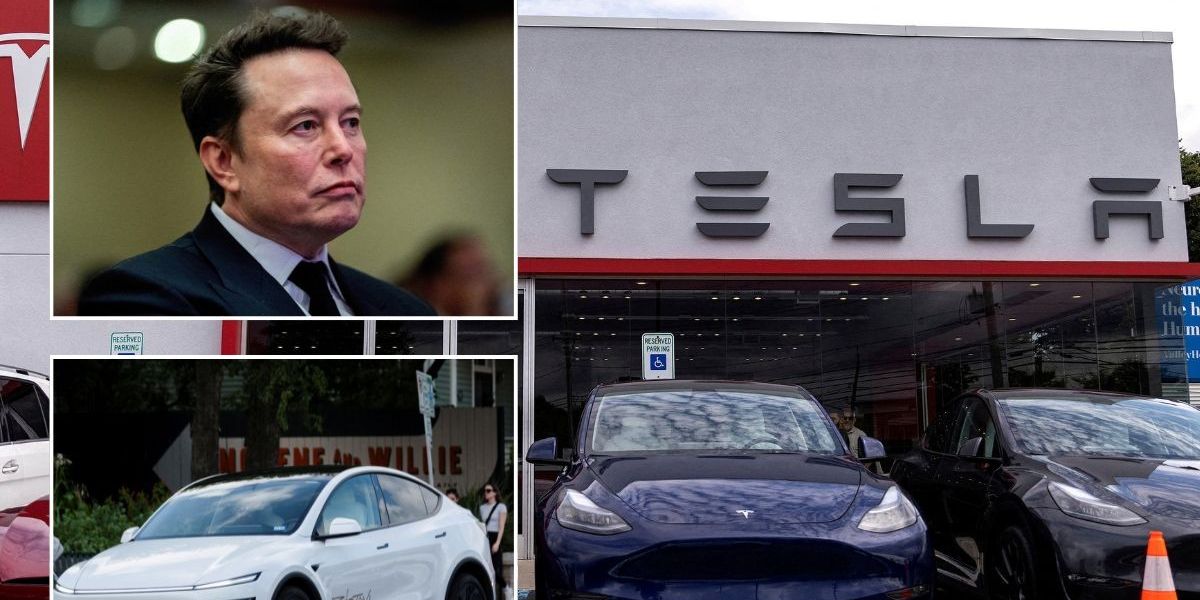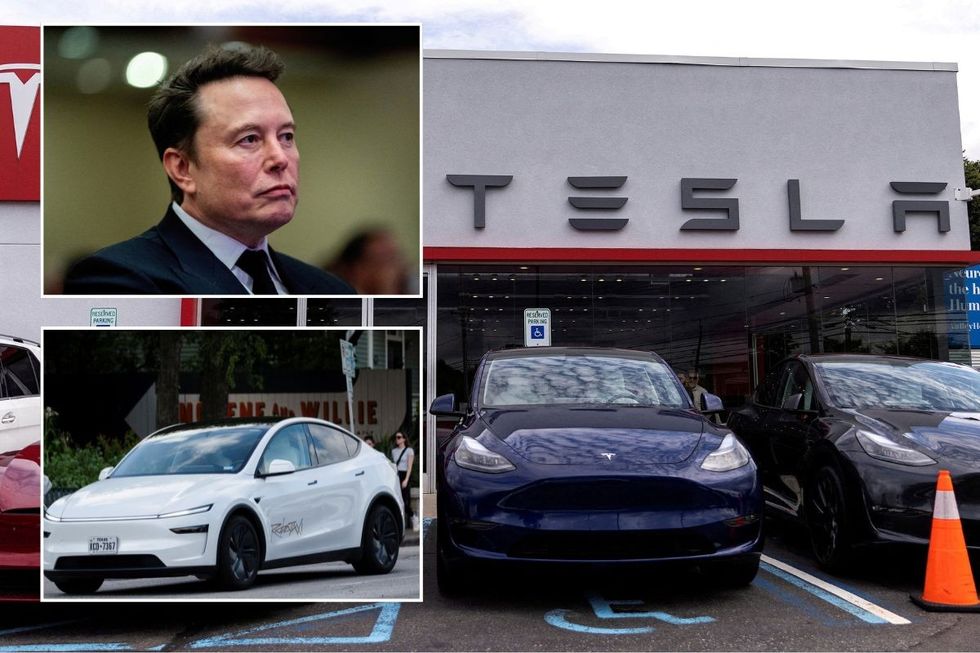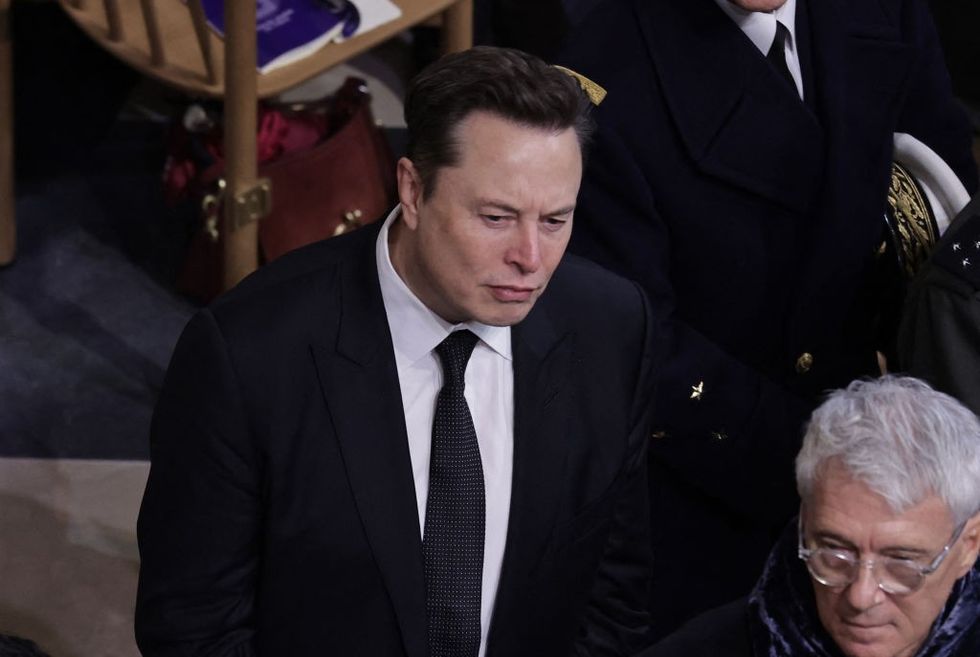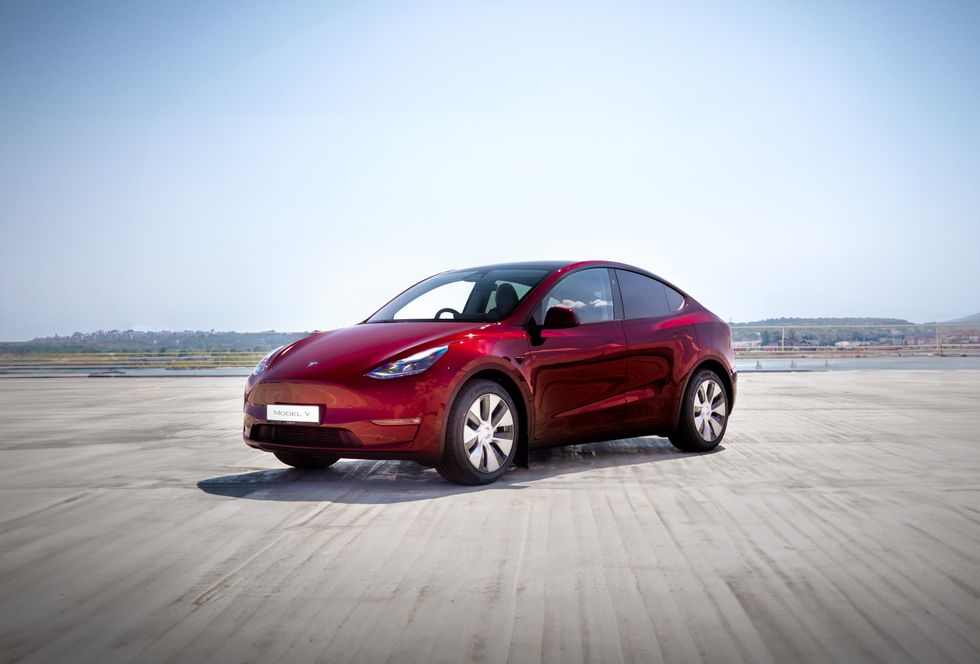



Elon Musk’s Tesla experienced a dramatic collapse in UK vehicle registrations during July, with figures plummeting to just 987 units compared to 2,462 during the same period last year, representing a decline of 60 per cent.
The sharp downturn marked a significant reversal from June's performance, when the electric vehicle manufacturer had recorded a 14 per cent year-on-year increase, according to data from the Society of Motor Manufacturers and Traders.
The drop occurred despite the recent introduction of an enhanced version of the company's popular Model Y sport utility vehicle, which had been expected to boost consumer interest.
 REUTERS/GETTY |
REUTERS/GETTY |
Experts have suggested that Elon Musk's political involvement has impacted Tesla's sales
Industry figures revealed the decline formed part of a broader European slump for the American carmaker, as multiple markets witnessed substantial falls in Tesla registrations throughout July.
The scale of Tesla's difficulties extended across major European territories, with Swedish registrations collapsing by 86 per cent to merely 163 vehicles in July.
French markets witnessed a 27 per cent decrease to 1,307 cars, while Belgian registrations tumbled 58 per cent to 460 vehicles, according to official industry statistics.
Germany, representing one of Europe's most significant automotive markets, recorded a decline exceeding 55 per cent, with registrations dropping to 1,110 units.
Analysis from Reuters indicated that across 10 European markets accounting for more than 80 per cent of Tesla's first-half sales in the EU, UK, and European Free Trade Association, the brand's July registrations fell by 45 per cent.
 GETTY |
GETTY |
Elon Musk was awarded 96 million shares in compensation by Tesla on Monday
These widespread declines persisted despite the company's efforts to revitalise sales through the updated Model Y release.
However, Chinese car giant BYD capitalised on Tesla's struggles, achieving remarkable growth across both the UK and German markets during the same period.
UK registrations for BYD surged more than fourfold year-on-year to reach 3,184 vehicles in July, while German figures showed an almost fivefold increase to 1,126 units, according to official data.
The Chinese company's year-to-date performance in Germany proved equally impressive, with registrations climbing more than fivefold to 7,449 units.
Ben Nelmes, founder of EV data analysis firm New AutoMotive, suggested that markets' apparent indifference to Tesla's poor sales figures indicated investor confidence now rested on the company's capacity to deliver functional self-driving vehicles.
The stark contrast between Tesla's declining fortunes and BYD's rapid expansion highlighted the shifting dynamics within Europe's electric vehicle sector.
The controversy surrounding chief executive Elon Musk's political stance has emerged as a significant factor in Tesla's declining European sales, with Reuters reporting that consumer enthusiasm for the brand has plummeted following his endorsement of Donald Trump.
Despite sales slumping globally, Tesla's board approved a new compensation package for Musk on Monday, awarding him 96 million shares equating to roughly £29billion aimed at "energising and focusing" the billionaire on reviving the struggling carmaker's fortunes.
 TESLA |
TESLA |
The new version of the Tesla Model Y was hoped to boost sales across the UK and Europe
The broader UK automotive market experienced a five per cent decline in July, with total registrations falling to 140,154 vehicles, though battery electric vehicle sales maintained positive growth at 9.1 per cent.
Uncertainty surrounding the Government's new electric vehicle subsidy scheme contributed to consumer hesitation, as buyers awaited clarity on which models would qualify for the £650million grant programme.
The Government subsequently announced that four Citroën EV models would be eligible for the scheme, enabling consumers to save £1,500 on purchases.
Mike Hawes, SMMT chief executive, stated: "July's dip shows yet again the new car market's sensitivity to external factors, and the pressing need for consumer certainty.
Several manufacturers experienced significant registration declines in July, including Fiat down 43 per cent, Honda falling 46 per cent, BMW dropping 18 per cent, and Toyota decreasing 23 per cent.
